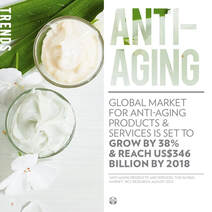
Hippocrates, the founder of modern medicine from ancient Greece, coined the term macrobiotics to describe people who were long lived and healthy by following the laws of nature. Hippocrates writings promoted his understanding of how to cure or avoid illnesses and to attain longevity.
The traditional medicine of India, known as Ayurveda is literally translated as the science of long life. As part of this medicine, rejuvenation and cleansing practices known as Panchakarma were and are still recommended periodically to improve one’s health and promote longevity. In addition, many exercises including breathing, herbs, and special foods are recommended to promote a long life.
In ancient China, longevity practices and teachings were at the heart of the original Chinese medical practices. Longevity teachings were known as Yang Shen Dao or the art of long life. Diet, lifestyle, mental qualities, herbs and exercises were taught to promote longevity.
In both India and China, emotional equilibrium and mental equanimity was and is still promoted to be crucial to maintaining a healthy balance of internal energies upon which longevity is based. Uncontrolled emotional reactions damage health by inducing stress. Meditation and teachings regarding the nature of the mind and experiences were central to aid in creating mental and emotional peacefulness.
Modern science has investigated and continues to discover new anti-aging methods through lifestyle practices, specific foods, nutritional supplements and herbs. Science has verified the benefits of many traditional practices such as meditation and deep breathing.
An example of a scientific understanding of longevity is the theory of mitochondrial decline in aging. The mitochondria in your cells produce ATP for your body’s energy. If an organ’s mitochondria fail then the organ loses energy and stops working and also fails. This is linked to Alzheimer’s disease, diabetes, heart failure and virtually all diseases of aging that can lead to death.
Mitochondria decline as we age so protecting them is an important aspect of anti-aging. Substances in the form of supplements that protect the mitochondria include CoQ10, pyrroloquinoline quinone (PQQ), acetyl-l-carnitine (ALC), Malic acid, Fumaric acid, Succinic acid, D-Ribose and various B vitamins. In particular, PQQ increases the number of mitochondria in the cells as well as their energetic efficiency.
Science has investigated other causes of aging including free radicals, an overstimulated metabolism, and mutation of cells, endocrine imbalances, waste accumulation and toxicity. Based on continuing new scientific discoveries, there are specific nutrients and techniques that can slow down damage to the human system from these imbalances to promote greater longevity.



 RSS Feed
RSS Feed